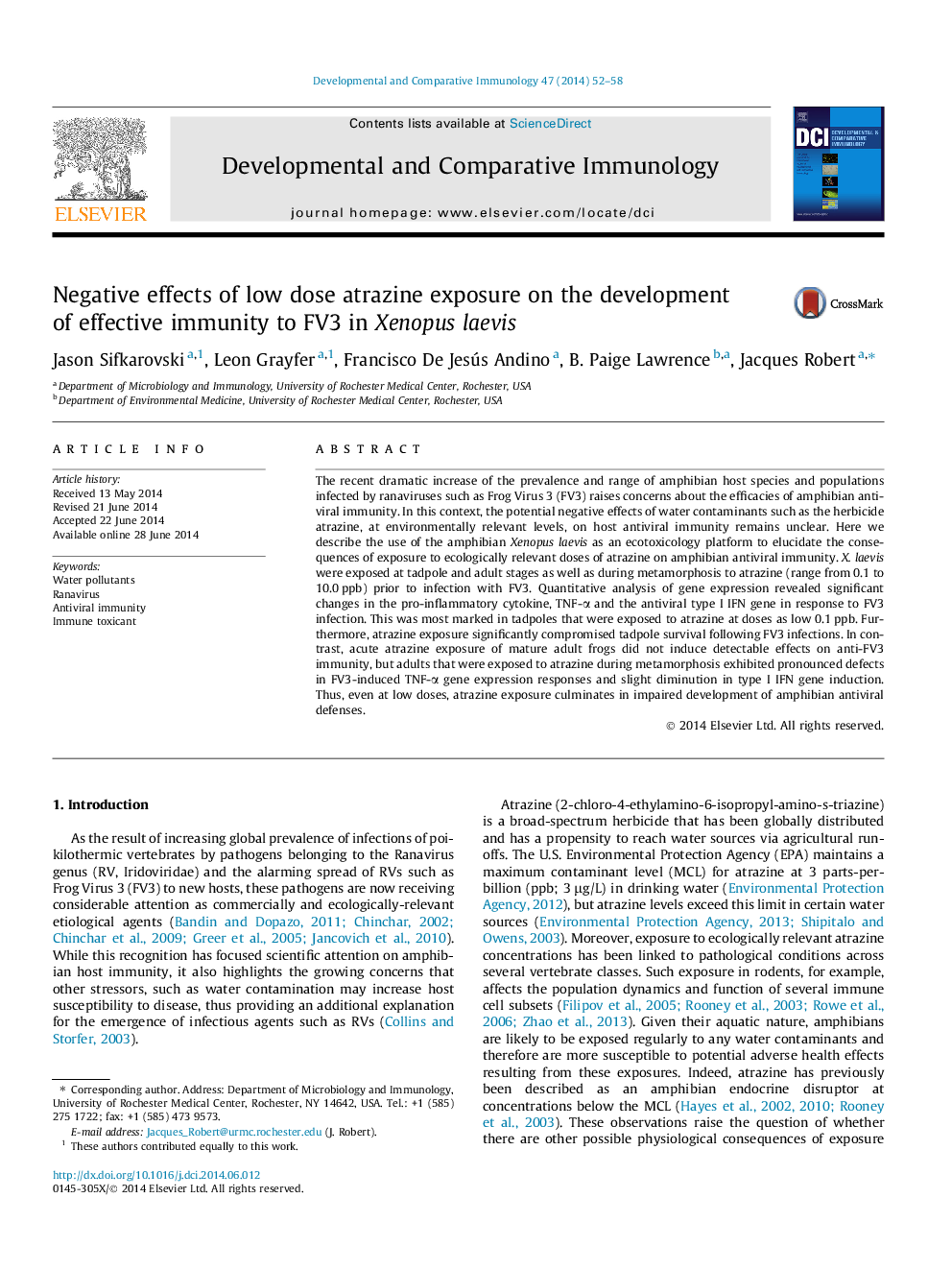| Article ID | Journal | Published Year | Pages | File Type |
|---|---|---|---|---|
| 2429108 | Developmental & Comparative Immunology | 2014 | 7 Pages |
•We developed Xenopus laevis as a reliable immune-ecotoxicology platform.•We examined the effects of low doses of atrazine on Xenopus antiviral immunity.•Atrazine severely impairs tadpole innate immunity and survival to FV3 infections.•Atrazine exposure during metamorphosis induces chronic antiviral immune defects.•Adults are more resistant to atrazine-mediated immune defects.
The recent dramatic increase of the prevalence and range of amphibian host species and populations infected by ranaviruses such as Frog Virus 3 (FV3) raises concerns about the efficacies of amphibian antiviral immunity. In this context, the potential negative effects of water contaminants such as the herbicide atrazine, at environmentally relevant levels, on host antiviral immunity remains unclear. Here we describe the use of the amphibian Xenopus laevis as an ecotoxicology platform to elucidate the consequences of exposure to ecologically relevant doses of atrazine on amphibian antiviral immunity. X. laevis were exposed at tadpole and adult stages as well as during metamorphosis to atrazine (range from 0.1 to 10.0 ppb) prior to infection with FV3. Quantitative analysis of gene expression revealed significant changes in the pro-inflammatory cytokine, TNF-α and the antiviral type I IFN gene in response to FV3 infection. This was most marked in tadpoles that were exposed to atrazine at doses as low 0.1 ppb. Furthermore, atrazine exposure significantly compromised tadpole survival following FV3 infections. In contrast, acute atrazine exposure of mature adult frogs did not induce detectable effects on anti-FV3 immunity, but adults that were exposed to atrazine during metamorphosis exhibited pronounced defects in FV3-induced TNF-α gene expression responses and slight diminution in type I IFN gene induction. Thus, even at low doses, atrazine exposure culminates in impaired development of amphibian antiviral defenses.
